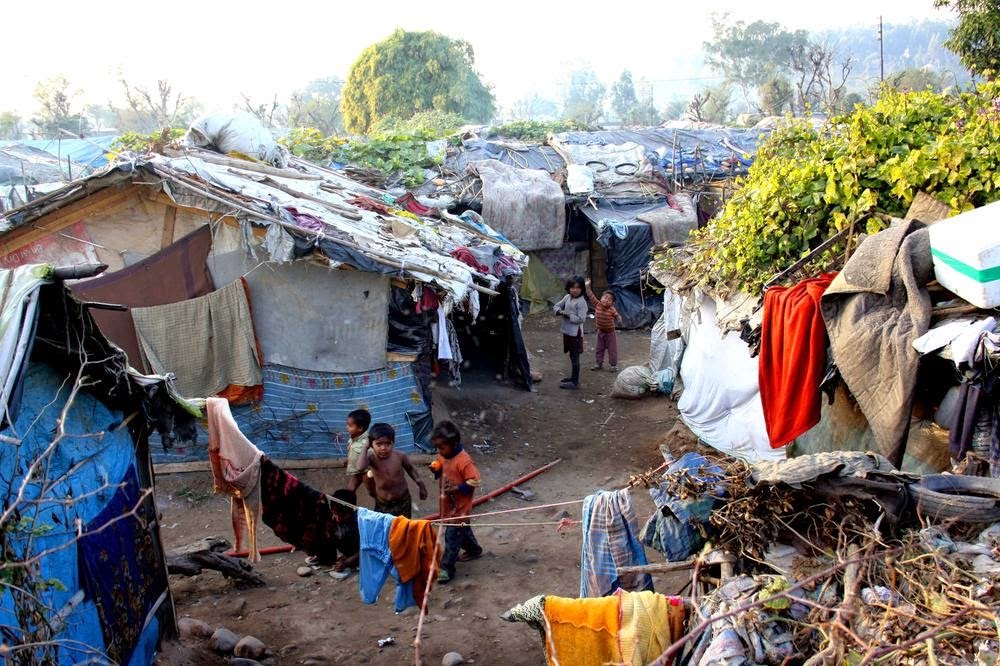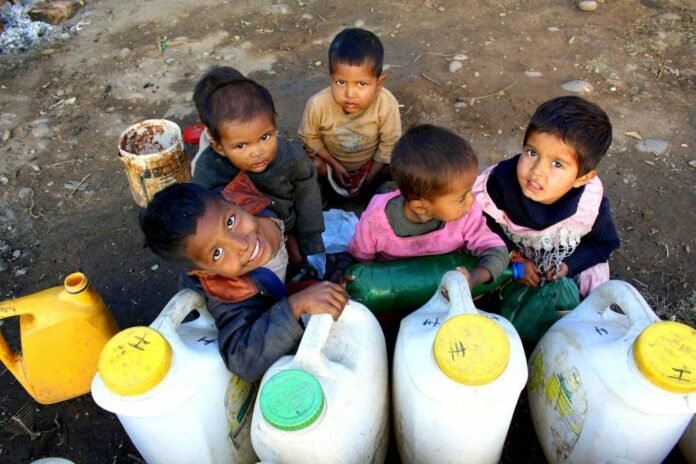
The Bangladeshis driven by economic or political compulsions have been coming since decades for work or for crossing over to Pakistan side of the border and they rarely settle here. Rohingya Muslims are a new addition. They didn’t come here to pose a threat but were driven out of their homes by extreme circumstances. Refugees, irrespective of their caste, color and creed as well as irrelevant of the political, social or economic conditions that necessitate their flight, are victims of oppressive policies and situations. They need all the sympathy and support
ANURADHA BHASIN JAMWAL
[dropcap]T[/dropcap]he ultimate tragedy is not the oppression and cruelty by the bad people but the silence over that by the good people, said Martin Luther King. The remarks perfectly fit in the present Indian scenario where communalism and intolerance perpetuated by bullies politically backed by those at the top echelons of power have submitted into silence large sections of intellectuals, media persons and activists. Barring some stray voices that are being silenced through sheer hooliganism, abuse of power and through other ways of victimization, rest have chosen to play safe and not speak up. The greater tragedy is that it is not just that liberal thinkers and secular people are choosing to wear the cloak of silence and indifference, probably for their own survival, some of them are guided by the belief that survival lies not in opposing what is wrong but in adopting it and joining the competition of speaking a language of racism and xenophobia.
If Congress, in the face of its dwindling graph and the consolidation of the power of the Hindu right wing, made the transition from secularism and socialism to soft Hindutva in recent decades, Bhim Singh’s Panthers Party has gone a step further in trying to outdo the same right wing group whose wave in 2014 elections wiped off the only regional party in Jammu region. The Panthers is laboring hard in its attempt to outdo the BJP which completely decimated the party.
Though a party with marginal presence, but for a few pockets, it was the sole regional voice that began consolidating and enlarging its base in the last two decades. From virtually a one man show, it had 4 members elected in the 2008 assembly elections. Earlier, the Panthers was duly recognized and joined the PDP led government as an alliance partner in 2002 with its chairman, Harshdev Singh, bagging the important portfolio of an education minister. Much waters have flown down the Tawi rivers since. The party has now gone a step further than the BJP, known for its genetic contempt and hatred for Muslims.
The latest in series is a clarion call to Jammu citizens to wake up against Rohingyas and Bangladeshis. While BJP has been partially guarded in its opposition of the Rohingya refugees and Bangladeshi migrant laborers, voicing its criticism in partially muffled tones, Harsh Dev Singh minced no words in giving a Quit Rohingyas and Bangladeshi call. A billboard in the heart of Jammu city now shows Harsh Dev Singh sporting a vermilion tilak and calling Jammuites to save the history, culture and identity of Dogras under threat from the refugees from Myanmar.

A video in circulation on the internet shows Harshdev speaking to media equating Rohingyas with terrorists and accusing them of murders. While Harshdev is ruthlessly involved in a major vilification campaign against the Rohingyas taking refuge in Jammu, Bhim Singh has invoked Article 370, calling it a hurdle in allowing any non-Indian to take up residence in the state is a “total violation of the constitution”. He avers that the document of accession does not permit foreigners, whether they be Rohingya Muslims from Myanmar or West Pakistan refugees, to live in Jammu and Kashmir.
Not only has Bhim Singh’s Panthers Party joined an existing systemic campaign against Muslim refugees, it has done so in a far more shriller tones and packed the rhetoric with abject lies and distortions. While there is no evidence to support Harshdev’s allegations about the Rohingyas driven out of Myanmar by an oppressive regime, there is nothing that stops refugees from taking shelter in Jammu and Kashmir. Article 370 comes in the way of permanently settling refugees from outside the state, not in providing them humanitarian aid and safe, decent shelters and other basic facilities. Curiously, while Bhim Singh has now clubbed the Rohingyas with West Pakistan refugees in opposing relief for them wrongly on grounds of Article 370, his party has earlier joined the chorus of settlement of West Pakistan refugees on various occasions.
There is a definite communal ring to the campaign building up against Muslim Rohingya refugees, even though there is an attempt by Bhim Singh to cloak the communal tones by invoking Article 370 or changing tack on the West Pakistan refugees who are Hindus. Jammu and Kashmir is home to many refugees and majority of them are settled in Jammu district. Barring a sizeable chunk of Tibetan refugees, mainly Buddhists, in Kashmir Valley, the rest are in Jammu.
Needless to point out that there is no opposition to Tibetan refugees living in the Valley from any quarters. West Pakistan refugees came after partition of the sub-continent in 1947, mainly from surrounding areas like Sialkot close to the India-Pakistan borders. It is not exactly known why Jammu is a favourite hub for refugees from Bangladesh for years and now Rohingyas, though a possible reason could be proximity to the borders as a conscious decision in their state of uncertainty. Linking their presence to any design is as condemnable as the notion of West Pakistan refugees settling in Jammu as part of some design.
Both in view of Article 370 and the larger backdrop of an existing political dispute and conflict, none of these refugees can be granted permanent residency in the state. The dispute itself puts a seal of uncertainty on the fate of not just the refugees living here but also the entire population of the state who are state subjects. However, there is no legal or political hitch in proving the best of amenities needed for dignified existence to any of the refugees. The West Pakistan refugees have been living here for 70 years.
The Bangladeshis driven by economic or political compulsions have been coming since decades for work or for crossing over to Pakistan side of the border and they rarely settle here. Rohingya Muslims are a new addition. They didn’t come here to pose a threat but were driven out of their homes by extreme circumstances. Refugees, irrespective of their caste, color and creed as well as irrelevant of the political, social or economic conditions that necessitate their flight, are victims of oppressive policies and situations. They need all the sympathy and support. The Indian government under successive regimes has hardly been supportive of issues of refugees. Politicization of their plight is the last thing they need.





